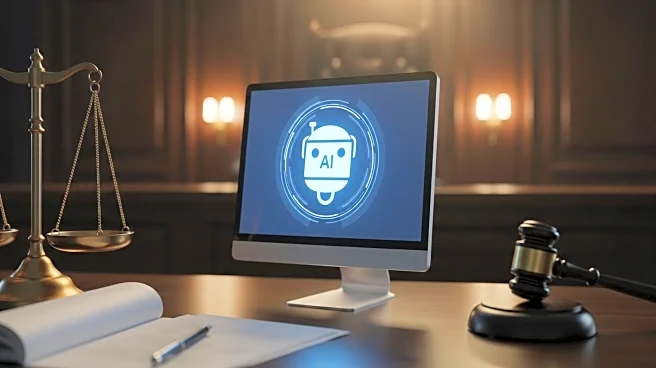What is the story about?
What's Happening?
In 2025, the use of generative AI tools like ChatGPT and Google Gemini has become widespread in law firms and corporate legal departments. These tools are valued for their ability to enhance efficiency, reduce costs, and streamline workflows. However, their integration into legal practices raises significant concerns regarding confidentiality and privilege, particularly when AI chat histories are considered for admissibility in court. The legal community is grappling with how to manage these issues responsibly, as the potential for AI-generated content to be used as evidence in litigation presents new challenges.
Why It's Important?
The increasing reliance on AI tools in the legal sector underscores a transformative shift in how legal services are delivered. While these technologies offer substantial benefits, they also introduce complex legal and ethical questions. The potential for AI chat histories to be used in court could impact client confidentiality and attorney-client privilege, fundamental tenets of legal practice. This development could lead to changes in how legal professionals approach AI usage, necessitating new guidelines and standards to protect sensitive information. The outcome of these discussions will have significant implications for legal practices and their clients.
What's Next?
As the legal industry continues to integrate AI technologies, stakeholders will likely push for clearer regulations and guidelines to address the challenges posed by AI chat histories. Legal professionals may need to develop new protocols for using AI tools to ensure compliance with confidentiality and privilege standards. Additionally, courts may begin to establish precedents on the admissibility of AI-generated content, shaping future litigation strategies. Ongoing dialogue among legal experts, technologists, and policymakers will be crucial in navigating these uncharted waters.
















